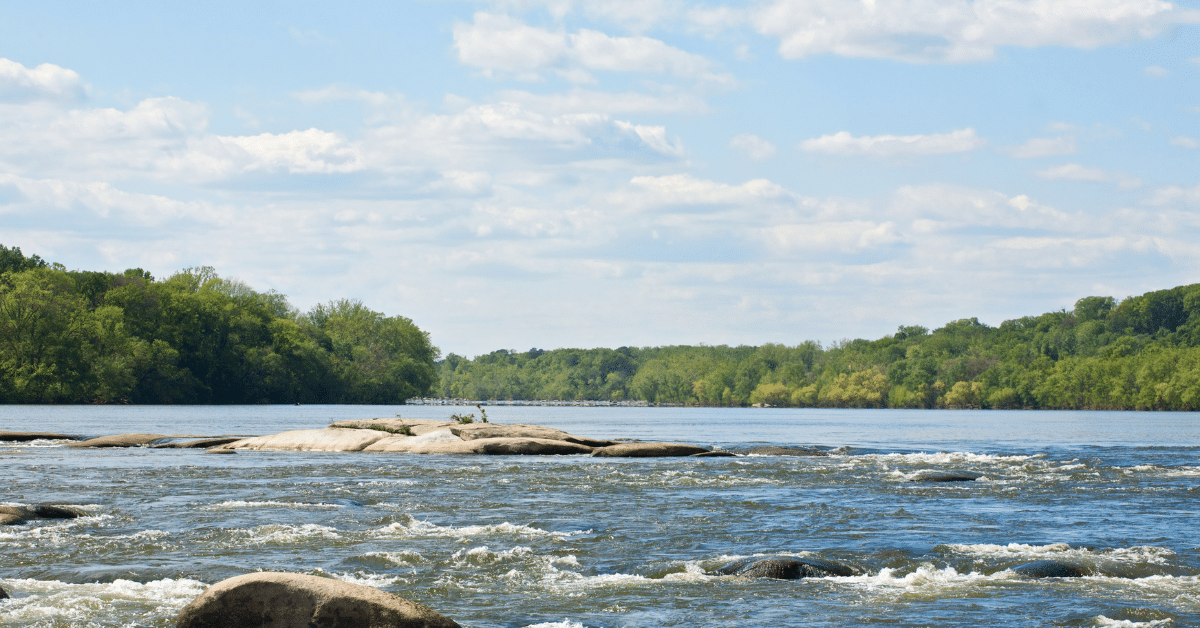
PFAS “Forever Chemicals” in Scottsville Wastewater Discharge to James River
The public has a chance to tell officials that we want them to enforce the law, to protect people and the environment from PFAS being discharged to the James River in Scottsville. PFAS are a class of dangerous contaminants commonly known as “forever chemicals” and samples collected at a treatment plant operated by the Rivanna Water and Sewer Authority (RWSA) show these substances are present in the discharge, posing risks to human health and wildlife.
Wild Virginia Calls on Virginia DEQ to Protect the Public and Resources
In documents released by the Virginia Department of Environmental Quality (DEQ), the agency has refused to even acknowledge that these harmful chemicals are present, let alone take necessary actions to control them. DEQ issued a public notice (attached) on February 13, 2024 inviting comments on a proposed permit for the facility, which releases treated wastewater to the river.
A public comment period will end on March 14, 2024 and Wild Virginia will hold an online event to help the public make effective comments. People may register to attend at this link.
The acronym PFAS stands for per- and polyfluoroalkyl substances. These synthetic chemicals are found in products like coatings for non-stick cookware, stain-resistant carpeting and upholstery, grease-resistant pizza boxes and food wrappers, and waterproof outdoor gear. Since first produced in the 1940s, these substances have spread throughout our world, into our waters, wildlife, and even our own bodies.
The characteristics that make PFAS useful in many of the products we value also makes them extremely dangerous. They do not break down quickly or easily, so once they enter the environment they stick around and build up over time. They accumulate in stream sediments, wildlife, and in humans, and we are exposed when we drink contaminated water, eat polluted fish, or recreate in affected streams or lakes. Add to these features the fact that PFAS pose risks of a wide range of health effects in very small amounts, and the urgency of controlling them becomes clear.
Since recreational contact with waters is a primary way that people are exposed to PFAS, anyone who uses or wants to use the James River for swimming, boating, or fishing should become educated about the issue and express their concerns to regulators who are obligated to protect us.
DEQ has a duty and full authority to require RWSA to sample for PFAS, disclose their findings, and take actions that would prevent releases of the substances to the environment. However, the proposed permit includes none of these provisions.
David Sligh, Wild Virginia’s Conservation Director stated: “We expect DEQ to do its job now, to prevent PFAS from entering the environment, not wait. For the agency to ignore the presence of PFAS in this discharge is the height of irresponsibility and we cannot accept this abdication of its authority.”
Sligh continued: “To its credit, RWSA took the initiative to gather data on PFAS at the Scottsville plant and at several others it operates. Now it’s time to take action based on those findings and other pertinent information. We will support the RWSA in addressing this vital issue as soon as possible.”
————————-
For more information about Wild Virginia and to join our mailing list, go to wildvirginia.org.
And for more information about our PFAS campaign, check the blog:STOPPING PFAS POLLUTION AT ITS SOURCE